The foundations of pedagogy in the USSR were formed in the 30s of the twentieth century, and A.S. Makarenko, summarizing in his works the experience of pedagogical activity in a labor colony for minors. He paid a lot of attention to issues of collective education, accustoming to work, strengthening children's health. Speaking about responsibility for the upbringing of the younger generation, he wrote: “By raising children, current parents educate the future history of our country, and therefore the history of the world.”
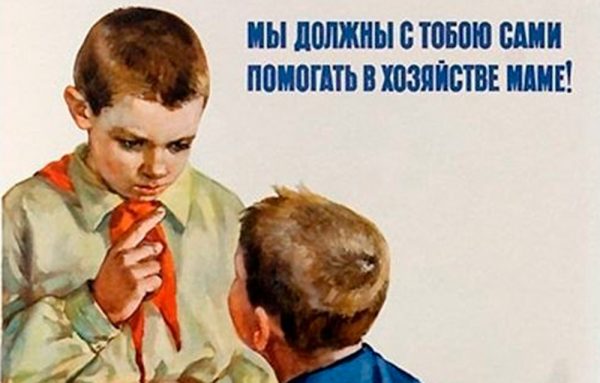
We will name some of the rules for raising a Soviet child.
1. It is necessary to observe a strict regime
From infancy, children were taught to eat by the clock, sleep by the clock, and walk by the clock. Between feedings it was not encouraged to give treats: sweets and cakes were treated only in exceptional cases. Medical workers monitored young mothers whether the regimen of the day of the child was respected, whether his weight gain corresponded to the established norms.
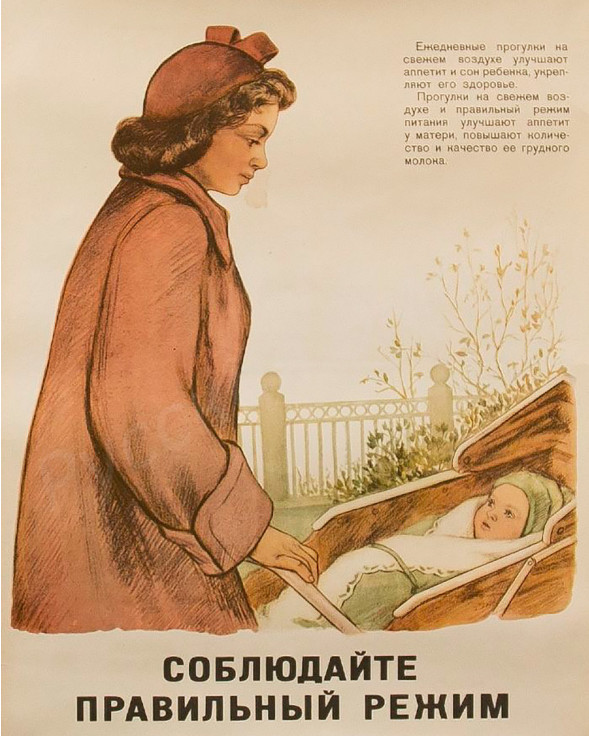
The diet was strictly observed in kindergartens, schools, pioneer camps. Remember E. Klimov’s film “Welcome, or No Trespasser”, where a nurse every week checked the weight of pioneers resting in the camp, and then on a calculating machine displayed the general result. It was believed that the more the child gets better, the healthier it will be. For schoolchildren, special forms were issued, where by hours and minutes it was proposed to paint their daily routine.
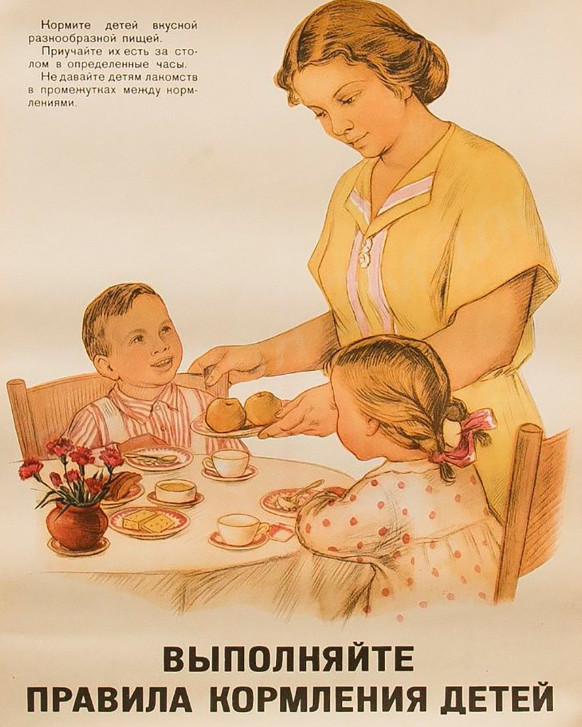
2. It is important to temper children so that they do not get sick
Walking, outdoor games were a priority for improving health. Fearless mothers and in the most severe frost went out for a walk with a stroller on the street. In kindergartens, walks on the playground twice a day were mandatory. The guys came from the walk rosy and funny, ate with great appetite. In some kindergartens, the daytime sleep of the kids took place on open verandas. Practiced hardening by pouring cold water. “A healthy mind is in a healthy body” - this rule was strictly followed by Soviet educators.
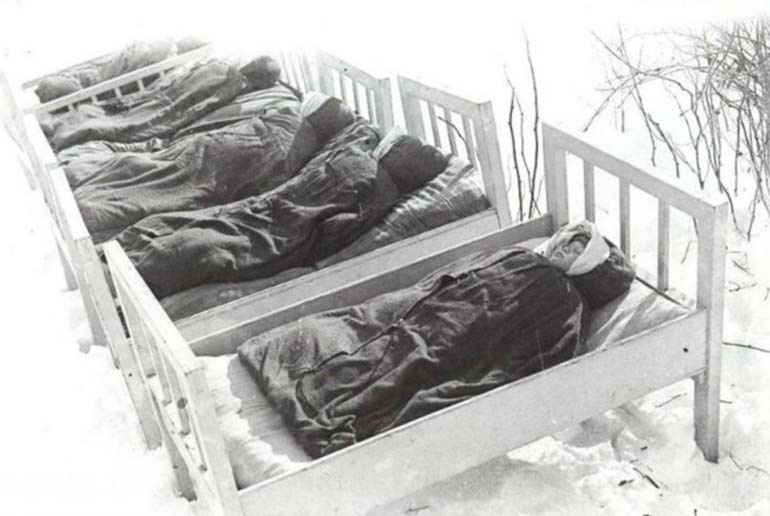
3.It is necessary to involve children of any age in physical education and sports
All students were involved in sports. In winter, children went skiing at physical education classes, and in the fall and spring, they did athletics. In bad weather, lessons were held in the gym: gymnastics, basketball, volleyball. There were sections in schools, the most talented in the field of sports were selected in specialized classes, training for these students took place twice a day.
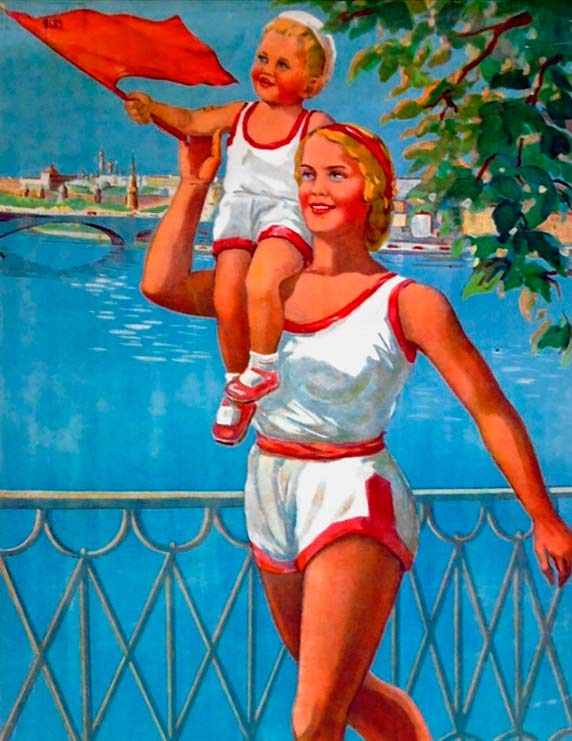
4. The early socialization of children is very important.
Since paid maternity leave lasted only two months and mothers were forced to go to work, children from infancy were given in a nursery. Preschoolers received their first socialization skills, learned to spend time together, and prepared for school.
5. From an early age you need to build a sense of responsibility
Already in the kindergarten, responsibility for the assigned task was formed. So, in preparation for the matinees it was necessary to expressively read the poem, sing a song together or dance. In schools, there was such a practice: if some student interfered with the teacher, did not respond to comments, his pioneer link was responsible for him: the guys explained to the mischievous person that he should not behave this way in the classroom. Their classmates took the lagging behind subjects “in tow,” helping them to do their homework. The teacher instructed the responsible schoolchildren to check the reading of poems by heart in their ranks or the correctness of the solution to the problem.
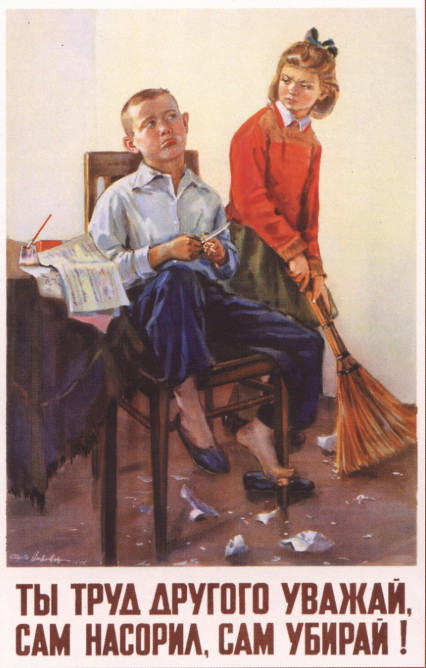
American academician and child psychologist Uri Bronfenbrenner in the 1970s studied in detail how to raise children in the Soviet Union and published the book “Two Worlds of Childhood: Children in the USA and the USSR”. In it, he quotes the words of a Soviet school teacher about how she struggles with bad behavior in the classroom.
“Imagine that a ten-year-old Vova is pulling Anya's braid. I make comments to him - one, second, third - he continues his. Then I ask the class to pay attention to Vova’s behavior. Now I’m calm - on a break with the boy will talk on duty pioneer link. They will remind him that his lack of discipline will respond to an assessment of the behavior of the whole link. ”
Collective responsibility is an excellent technique that could help a lot in the fight against today's bullying in schools.
6. Accustoming to work - an integral part of education
Labor education at school and at home was paramount. Children acquired the necessary skills in special labor lessons, where girls were taught to sew, embroider, cook, and boys - the basics of carpentry and carpentry. In high school, students visited the CPC (training factories), where they got acquainted with the basics of future professions: typists, nurses, locksmith, electrician, driver, etc. Students were on duty in the class: they washed the board, wet-cleaned during a long break, after the lessons they washed floor. Once a quarter, general clean-ups were arranged with washing of desks, walls, and doors. In the summer, schoolchildren underwent internships: worked in school areas, participated in the repair of premises. The school brought up respect for people of work.
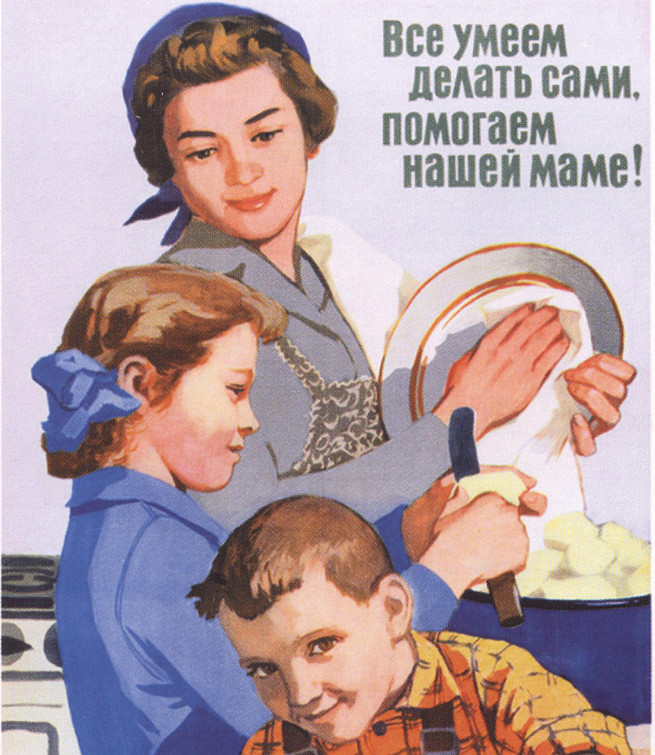
7. Free time should be busy.
After school, Soviet children went to circles, practiced in sports sections, and did extra-curricular activities. It was difficult to catch them milling about in the yard or lying on the couch by the TV. In the city and in the village, clubs, libraries, children's art houses, music and art schools worked, where children could develop their abilities and realize their talents for free.
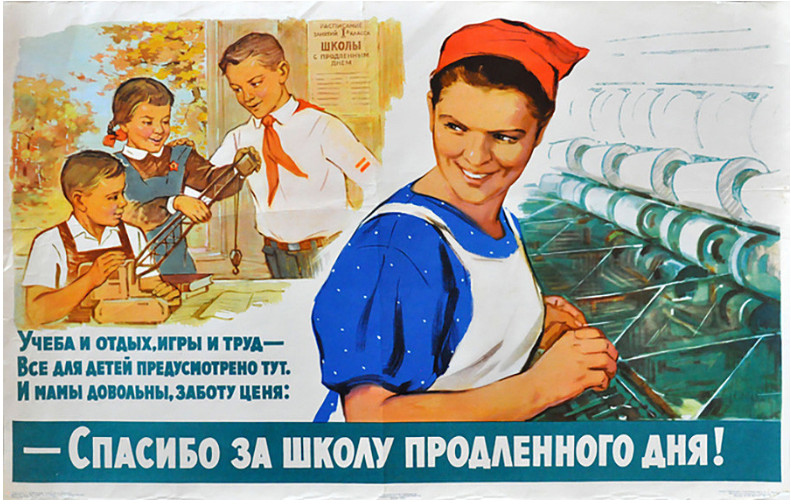
8. In relations with children, one must observe strictness, do not indulge them
Parents were encouraged to treat children as adults, not to indulge their whims and desires. In Soviet families, the number of toys was minimized, but there were many interesting books with pictures (they were cheap). It was considered wrong to give children expensive gifts, to buy beautiful clothes (they were in short supply), to somehow distinguish them from their peers.
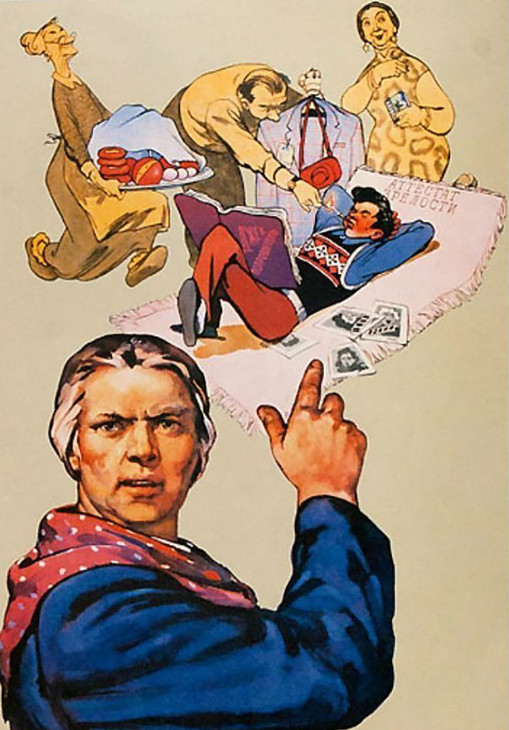
nine.It is necessary to cultivate interest and love for nature
Part of the Soviet upbringing was the formation of a humane attitude to all living things, a love of nature. In the books of the Soviet teacher V.A. Sukhomlinsky this side of education was given a lot of attention. Preschoolers under the guidance of the educator observed how the first leaves bloom, how the plants bloom, how insects live. In kindergartens there were living corners where children looked after their inhabitants: a turtle, fish, and a guinea pig. Schoolchildren attended young naturalist circles, went camping, kept diaries of observing nature.
10. It is important to form moral qualities
The moral code of the builder of communism was based on moral education, according to which patriotism, internationalism, honesty, respect for elders, and other moral qualities were raised in children. It was believed that the desire for enrichment, selfishness, individualism - shameful qualities.
Schoolchildren were taught to live not for themselves, but for their country. Do not strive for personal gain and enrichment, do not lie, keep clean, respect the elders: give way to public transport, help older people cross the road or carry heavy bags.
One of the most important values that a child was instilled in was a family, because the family was an important unit of Soviet society.
That was education in the Soviet Union. Good or bad is up to you to judge.
READ ALSO:








